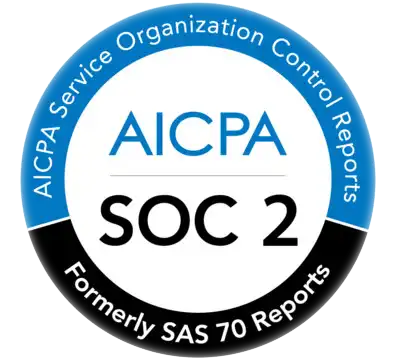With the introduction of the Corporate Transparency Act (CTA), Maine businesses – just like others all over the U.S. – now need to be aware of one additional obligation: filling out a Beneficial Owners Information (BOI) report and filing it online with the Financial Crimes Enforcement Network (FinCEN) e-filing system.
Since they’re so new and unfamiliar, BOI reports have generated a lot of questions and confusion. Many business owners want to know more about them, and they often turn to trusted professionals – like accountants – to get the info they need. This guide will cover some of the most commonly asked questions Maine accountants may encounter.
How to File BOI Reports in Maine: Step-by-Step Guide
Filing a BOI report in Maine is very similar to filing elsewhere around the U.S. There’s only one official way to file your report: online via the FinCEN e-filing platform. In other words, there’s no physical paperwork to worry about, and you don’t have to fill out anything by hand or mail it anywhere. Just enter your info online and click to submit.
Here’s the full process, step-by-step:
- Determine who all of the “beneficial owners” of the business you’re filing for. According to the CTA itself, a beneficial owner is anyone who directly or indirectly exerts significant control over the business or who owns a minimum of 25% of its equity interests.
- Gather info about each of the beneficial owners. That includes names, addresses, dates of birth, and even copies of photo IDs for each person. This will all be needed when it comes to filling out the form, so make sure you get every detail you need before proceeding.
- Log onto the FinCEN online e-filing system and start filling out your report. You can either do this directly via the system, or download a PDF file, fill that at your own pace, and then upload it when you’re done. Either way, enter all the requested info for each beneficial owner, as well as other business details, and check everything before submitting.
What Accountants Need to Know

Accountants are among those who need to know the most about BOIR filing since they’re often tasked with filling out reports for their clients or answering questions from clients about how the process works. As such, here’s a quick Q&A guide for accountants, covering all the basics of BOI reporting, along with some helpful tips to speed up the process.
Which Businesses Need to File?
The simple answer is that most businesses need to file BOI reports. There are some exemptions (which we’ll detail in the next section), but the majority of businesses – including LLCs, corporations, and other types of businesses that registered with the Secretary of State when they formed – all need to submit BOI reports.
Which Business Entities Are Exempt?
The CTA outlines 23 types of business entities that are exempt from filing BOI reports. The list includes the likes of governmental authorities, banks, credit unions, and insurance companies. If your category of business is listed among the exemptions, then you can safely ignore BOIR filing requirements. Otherwise, you’ll almost certainly need to file a report.
Are There Any Specific Elements for BOIR Filing in Maine Compared to Other States?
No. While some states do have their own specific rules or guidelines regarding BOIR filing and compliance, Maine is one of many that simply follows the federal rules, outlined in the CTA.
What Is the Deadline for Filing?
That depends on how old the business in question is. Older businesses (formed before 2024) have until January 1, 2025 to file. Meanwhile, those that were created during 2024 have 90 days from their official date of formation to file, and those formed from January 1, 2025 onward will have 30 days from the date of formation to file.
What Happens if a Report Is Filed Late?
There can be quite severe consequences for businesses that file their BOI reports late or fail to file at all. For every day after the deadline, you can face up to $500 fines. So, even missing the deadline by a few days can be very costly. In addition, there’s also a risk of criminal charges, with the potential for up to $10,000 in fines and up to two years imprisonment for owners who fail to comply with BOIR demands.
What Is the Purpose of the BOI Report?
This is one of the questions that many accountants face on a regular basis from their clients, but it has a simple answer – BOI reports were introduced to combat illicit business activities. Bad actors, for example, can hide behind vague or convoluted ownership structures, or set up “shell companies” to hide illegal activity.
By demanding almost all businesses share their ownership information, the CTA effectively makes the business landscape much more transparent. This, in turn, means that it’s harder for any of those aforementioned bad actors to conceal their illicit activities, which should, theoretically, help to reduce certain types of business crime all across America.
Who Counts as a Beneficial Owner?
This is another very common question and one that can seem particularly tricky for those who are filling out BOI reports for the first time. The CTA is the best source for information about beneficial owners. But here are the general rules:
- Beneficial owners are those who control or own at least 25% of a company’s equity interests.
- Anyone who exercises significant influence over a company’s decisions and operations can also qualify as a beneficial owner.
Who Can Access Beneficial Owner Info?
If you’re an accountant, you may also have clients asking how accessible their beneficial owners’ info will be, once their BOIR has been filed. Well, according to the CTA, various authorities at local, state, and federal levels can access BOI information, provided it’s for national security, intelligence, or law enforcement purposes.
It’s also possible that certain financial institutions could access BOI data, provided they have consent from the company in question. However, this information is generally only accessible to the authorities, and to the businesses operating legally, there’s no need to worry about the information being widely available or used for any nefarious or concerning purposes.
What If the Ownership Structure Changes in the Future?
Let’s say that you submit a BOI report for a company, but then its ownership structure changes six months later due to, for example, the departure of a former beneficial owner or the arrival of a new one. In those cases, you’ll need to submit a revised report to FinCEN to update them on the business’ ownership.
According to FinCEN’s site, business owners have a grace period of 30 days in which to report these kinds of changes. This applies when reporting any change to previously reported info about the company or its owners.
How to Fill Out BOI Reports More Quickly
The emergence of BOI reports is both good news and bad news for those in the accountancy profession. On the positive side, it means you have a whole new extra service to offer to clients, as you can help out with their BOI reporting for a fee. Plus, it’s a relatively simple process, once you know the basics, especially compared to other, more complex accounting tasks.
On the other hand, it can be quite tedious and time-consuming to file BOI reports for clients, and there are risks and pitfalls to avoid along the way. It’s crucial, for example, to file reports in full, with all relevant and requested info. If clients fail to provide the details you need, you could end up filing incomplete reports that generate problems down the line.
To speed up, simplify, and optimize your BOI reporting for all existing and future clients, there’s one clear solution: use BOI reporting software. As the name suggests, this software is made specifically for the task of BOI reporting. You can use it to help you fill in reports much more quickly, with helpful key features like:
- The ability to save drafts of reports-in-progress and revisit them later on.
- The option to import data (as a CSV file, for example) to complete reports more efficiently.
- Report cloning, helping you when filling out reports for multiple similar or related entities.
- Strong standards of security to keep owners’ personal data safe and sound.
With a reliable and trusted BOIR app on your side, the entire process of BOI reporting is far easier and less likely to result in any errors or discrepancies.
Start Offering BOI Reporting to Your Clients Today

So, if you work in accountancy, offering BOI reporting to your clients could be a nice and simple way to make some additional money and help the people you work for comply with these recently implemented CTA rules. Just make sure you’re thoroughly familiar with all that’s involved with BOI reporting to avoid making mistakes. Also consider using a trusted and proven piece of BOIR software to help you get ahead and complete reports quickly and efficiently, time after time.






